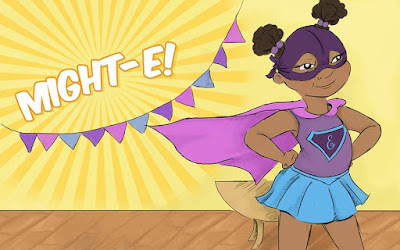I started writing my novel, The Life-Dividing Days, on a train I was taking from Ann Arbor to my sister’s house in St. Louis. By the time I arrived, the first version of the first chapter was finished. I gave it to my sister, Laura, who was encouraging. I always looked up to my sister, who has a master’s degree in English and worked her tail off to become Dean of Libraries for Webster University. She agreed to be my first reader. I’d send her each chapter as soon as it was finished and would wait for her response. I seriously couldn’t move forward without hearing back from her. Fortunately, she continued to be supportive, coaching me to keep writing.
The very first criticism I received of the book was from my brother (always the pragmatist – lol) who asked why the book had to be about something so depressing. It was such an innocuous comment, really, but I felt completely crushed by it. It’s not as if I’d never had my work revised, either. I was a journalist for 4 years and a communications specialist for two. My writing was constantly being edited and it never bothered me. Writing a novel, though, is like pouring your heart and soul onto a page. For that reason, having it criticized cut to the core.
In the last 15 years, I’ve had countless paid critiques by authors and agents. I’ve been to conferences and joined writing workshops. For five years, I met monthly with a writing group, taking excerpts of novels, short stories, creative essays, poems and even picture book manuscripts and laying myself bare. Our group consisted of two English/creative writing professors and three other talented writers/poets. I valued their opinions and learned an incredible amount from them about craft. They changed my work in in-numerous ways, and they changed how I think of critiques.
Somewhere along the line, a switch flipped. I started looking forward to feedback and became grateful for every bit of constructive criticism they offered. I learned how valuable it can be and saw how much these insights improved my writing – and that’s really the end goal.
I’ve recently started querying literary agents. I won’t lie and say it isn’t nerve-wracking. I know that my chances of getting published, statistically, are slim; only about 3% of unsolicited novels are picked up by literary agents and that’s just the start of the publishing process. I also won’t deny that rejection hurts, but these days the blows don’t connect quite as hard as they once did and the healing comes much quicker.
In that way, I feel like I’ve grown since my brother’s comment. I’ve even come to realize that what he said wasn’t a comment about my writing, but more a comment of how my brother saw me, as a generally upbeat, positive person. I find it sweet, now, that he was concerned about my writing revealing my darker, more complex side.
I guess that’s all part of growing a thick skin, which is vital if you plan on being a writer.
Melissa Olson Cunningham has a degree in communications from the University of Michigan and has written for children's and parenting magazines, weeklies, and online publications in the states and Canada. She has won two awards for her novel, The Life-Dividing Days, which she is currently querying. View her blog, Wordsmithery, at her website.
Thanks for sharing your experiences, Melissa, and best of luck with your queries. Speaking of queries and critiques,
SCBWI-MI is gearing up for our Written Critique Program:
What do Brianne Johnson, Carrie Howland, Adah Nuchi, Susan Dobinick and Julie Bliven have in common?
1. They are all experts in the children’s literature industry; Brianne, Carrie, and Adah as agents and Susan and Julie as editors.
2. They have all offered to critique manuscripts for our members as part of the SCBWI-MI Written Critique Program.
This program will feature 8 agents and 9 editors offering a total of 294 critiques in February and March. It's an opportunity to make an important connection and receive valuable feedback on your manuscript from the pros.
Are you an author/illustrator? Several of the experts will review illustrated manuscripts, too.
Registration opens on February 1. The deadline for submission of February manuscripts is Feb. 15 and the deadline for March manuscripts is March 15. You will be able to purchase more than one critique -- first come, first served -- until all the slots are full.
So whip that manuscript (or manuscripts) into shape and get ready to submit. You might want to review the following articles as a checklist to make sure your manuscript is submission ready.
http://ingridsundberg.com/2010/12/29/10-tests-to-prove-your-manuscript-is-ready-for-submission/
Is Your Manuscript Ready to Submit? - Books & Such Literary Management
How Do You Know When Your Manuscript is Ready?
More details to come! SCBWI-MI members will receive an email, and more info will be on our
MichKids listserv and
Facebook page.
In the meantime, visit
KidLit 411's Birthday Bash 2017 for a wealth of resources related to children's writing/publishing and multiple opportunities to win free critiques from literary agents.
Cheers!
Kristin Lenz










